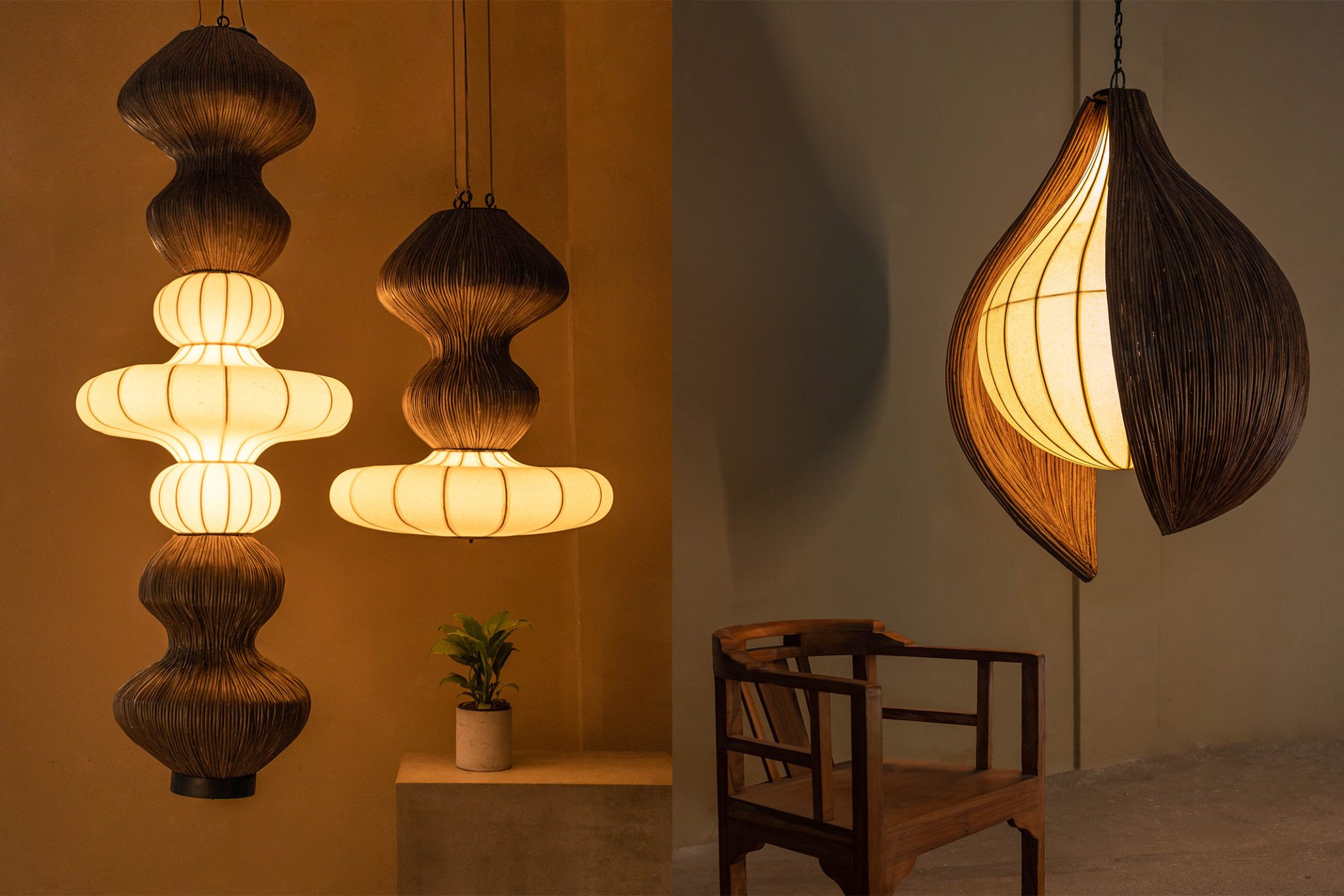306 Artisans And 144,000 Hours Shape The Rithika Merchant x Dior Collection
The 2025 Dior Spring-Summer couture show was backdropped by Mumbai artist Rithika Merchant in collaboration with the Chanakya School of Craft.
- 20 Feb '25
- 6:07 pm by Virender Singh
At the heart of narrative world-building, there’s scenography. Akin to set design for film or theatre, composing a picturesque background is indispensable to a ramp walk, because it sets the context for the fashion chronicle about to unravel. The potential of immersive storytelling is not lost on Maria Grazia Chiuri, Dior’s first female creative director. In anticipation of this year’s Paris Fashion Week, Chiuri established a rapport with Indian artist Rithika Merchant through Karishma Swali, creative director at the Chanakya School of Craft. A serendipitous connection between these three visual storytellers resulted in an unforgettable backdrop for Chiuri’s runway at the latest Christian Dior Spring-Summer 2025 Haute Couture show.
This collection was envisioned as a hide-and-seek spectacle traversing time’s confines. Picture the lace-trimmed tulle culottes, crinoline draped skirts and Mohican-inspired headpieces slowly telescoping back into the Cigale silhouettes designed by Monsieur Dior back during the autumn-winter 1952-1953 haute couture line. In this temporal paradox, Maria Grazia Chiuri moves in total freedom, allowing access to another reality dominated by constant mutations of meaning.
Also Read: Dior Strikes Gold In Bangkok With A Gilded Concept Store

The Intersection of Art and Couture
Presented in a custom-built box-shaped arena at the Musée Rodin in Paris, the Dior Spring-Summer 2025 show is truly a masterclass in high-concept scenography. Even the exterior façade has been embellished with free-flowing murals by Merchant, a tone-setting prelude to what awaits within. Through her œuvre, the young Mumbai-based artist dwells upon the crossroads of comparative mythology, science and subaltern narratives. Nature plays a crucial role in Merchant’s paintings and collages, which are generally brought to life using watercolour and cut paper elements heavily inspired by 17th-century botanical sketches, Kalamkari prints, Mughal paintings and Kalighat folk art. The parallel universe of Merchant’s childhood lays a foundation for the central theme of metamorphosis, against which Chiuri’s transparent fabrics, flounces and the gleaming fringes seem so irresistibly ethereal.
Also Read: Fashion Designer Iris Van Herpen’s Biomorphic Designs At The Natural History Museum

The Spiritual Canvas Of Rithika Merchant
Merchant’s style draws from a personal vocabulary of cosmic symbols and botanical drawings of jackfruit and thunder lilies, refracting the collective past of womanhood through a kaleidoscope of South Indian mythology. Evoking a natural landscape punctuated by primordial creatures, swirling galaxies and desert mysticism; the entire dreamlike mise-en-scéne features an assortment of images which harken back to Merchant’s upbringing. “The seeds we planted in the past have grown into the flowers of the present,” quips Merchant. So this is how the spring-summer 2025 collection, thought up by Chiuri as a rehashing of the Alice In Wonderland parable, finds its spiritual bearings in Merchant’s site-specific installation ‘The Flowers We Grew.’
Also Read: Navigating Rithika Merchant’s fantastical worlds steeped in modern myth

A Testament To Interdisciplinary Artistry
“Rithika’s work resonated with me on a deeply personal level,” explains Karishma Swali, co-founder and creative director at the Chanakya School of Craft “The resilience of matriarchs from Kerala aligned powerfully with my own belief in honouring women’s histories through craft.” Founded by Karishma Swali and Monica Shah, the Chanakya School has been instrumental in fostering skills development among women from low-income communities. Used to working predominantly with recycled fabric scraps, each artisan has mastered their own specialised technique—whether it be hand weaving, embroidery or knotting techniques—while somehow carrying synergy with one another in a magnanimous orchestra of sorts.

The original paintings were adapted into 37 expansive panels, each measuring 9 by 11 feet, along with 16 circular compositions through diverse techniques—including satin stitch, French knots and couching stitch among others. Spanning over 144,000 hours of concerted efforts by 306 artisans, these tapestries read like an otherworldly exploration of maternal lineage, honouring women’s histories through hand embroidery. Interlacing silk threads and cotton cords, Ms. Swali worked closely with the graduate women of the Chanakya School of Craft and the master artisans of the Chanakya Atelier to meticulously translate the delicacy of Rithika’s work into textiles.

Swali sheds light on the creative exchange, “Our collaboration for the Dior Haute Couture Spring-Summer 2025-26 scenography became a convergence of shared sensibilities.” The primary challenge that Swali and her team ran up against, was how to explore the beautiful chasm that lies between two colours, an effect captured fluidly by Merchant’s watercolours but almost a sorcerer’s trick to pull off through slow stitching. “[The collaboration]is a testament to interdisciplinary artistry—where hand embroidery emerged as a medium to breathe life into Rithika’s stories,” adds Swali. The rich Prussian blue that Merchant mixes with black in her paintings, for instance, has been reinterpreted so meticulously in the thread that the panels seem to have just materialised from the canvas itself.
Also Read: New In Mumbai: A Groundbreaking Dior Showcase, Five Abstractionists At DAG, And More

Runway scenography is an opportunity for the designer to submerge a captive audience into the laws of their universe, unleashing the floodgates of memory and reawakening essential themes that tie the narrative together. In the case of Dior’s Spring-Summer 2025 Haute Couture show, scenography became more than just a visual framework. Just as Merchant’s paintings navigate liminal spaces between folklore and contemporary identity, the garments in Chiuri’s collection oscillate between eras, blending Dior’s stylistic heritage with the ethereal softness of a dreamscape.






















